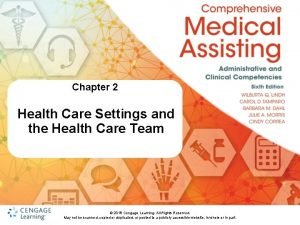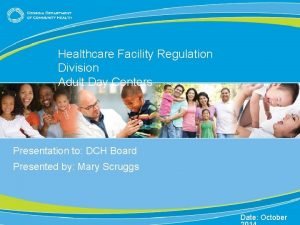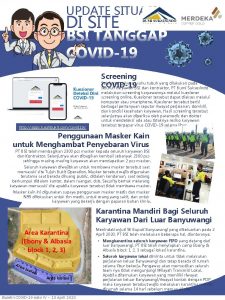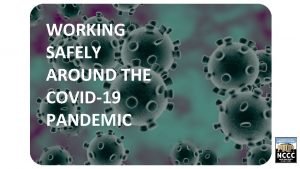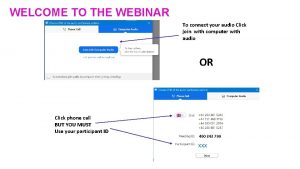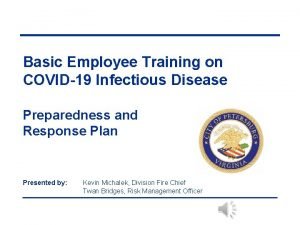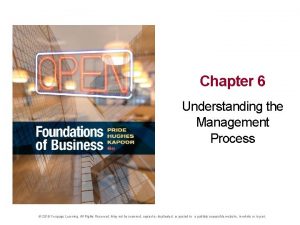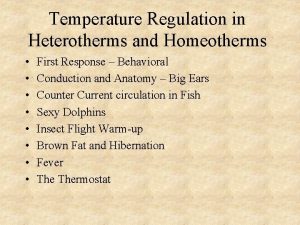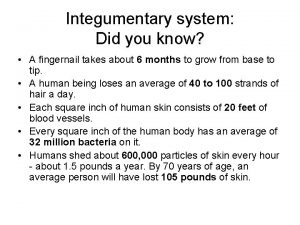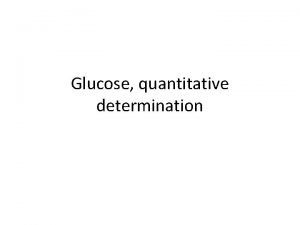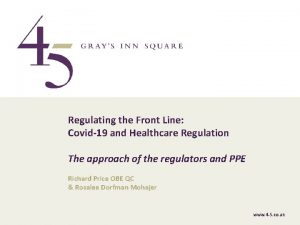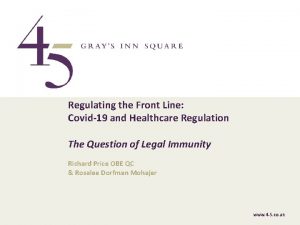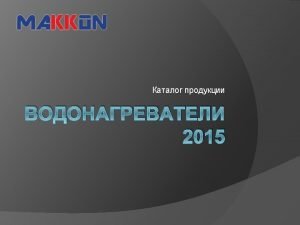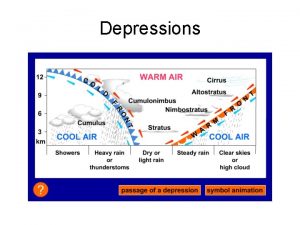Regulating the Front Line Covid19 and Healthcare Regulation











- Slides: 11

Regulating the Front Line: Covid-19 and Healthcare Regulation Who takes the weight of indemnity? Richard Price OBE QC Vivienne Sedgley & Rosalee Dorfman Mohajer www. 4 -5. co. uk

Article 3: WHO TAKES THE WEIGHT OF INDEMNITY? This is the third and final article in this series on the medico-legal implications of Covid-19 and healthcare regulation. Richard Price OBE QC, Vivienne Sedgley and Rosalee Dorfman Mohajer discuss the indemnities in place for clinical negligence and regulatory action during the Covid-19 pandemic. § Indemnities for civil actions: What is the normal position? § What has changed? § What about those deployed in unfamiliar areas, registering early or previously retired? § What about volunteers? § What about medico-legal indemnities? www. 4 -5. co. uk

Indemnities for civil actions: What is the normal position? NHS healthcare professionals are indemnified through one of the following state indemnity schemes made pursuant to regulations made under s. 71 National Health Service Act 2006: • The Clinical Negligence Scheme for Trusts (CNTS), if the individual is engaged by an NHS trust to provide NHS services. • The Clinical Negligence Scheme for General Practice (CNSGP), if they are engaged by a GP practice to provide NHS services. Both schemes are administered by NHS Resolution. Some healthcare workers may also have individual indemnity arrangements with medical defence organisations or private insurers. www. 4 -5. co. uk

What has changed? The Covid-19 pandemic raises concerns about the indemnification of the additional health and care staff brought to the front line. For example, those discussed in our first article, such as retired professionals returning to work, trainees qualifying early and medical students volunteering. The Coronavirus Act 2020, s. 11 permits the Secretary of State to indemnify or make arrangements for indemnification of a person in respect of a ‘qualifying liability’ incurred by them. A ‘qualifying liability’ is a liability in tort for personal injury, death or loss after 25 March 2020: (1) (2) The appropriate authority may— (a) indemnify a person in respect of a qualifying liability incurred by the person, or (b) make arrangements for a person to be indemnified, in respect of a qualifying liability incurred by the person, by an authorised person. References in this section to a qualifying liability are to a liability in tort, in respect of or consequent on death, personal injury or loss, arising out of or in connection with a breach of a duty of care owed in connection with the provision, after the coming into force of this section, of a relevant service. www. 4 -5. co. uk

What has changed? Similar provisions are also made in relation to Scotland Northern Ireland (sections 12 and 13). In a joint letter on 2 April 2020 the Department for Health and Social Care, NHS Resolution and NHS England NHS Improvement stated that additional clinical negligence indemnity cover had been introduced under the above provision. The new scheme is also administered by NHS Resolution and known as the Clinical Negligence Scheme for Coronavirus (CNSC). As explained in the explanatory notes to the 2020 Act and the FAQs published by NHS Resolution, this is intended to be a ‘safety net’. The majority of health and care work carried out in response to the Covid-19 pandemic is expected to be covered under the pre-existing arrangements. For example, special healthcare arrangements made by Trusts (such as the NHS Nightingale hospitals) will be covered by the usual CNST. The CNSC indemnity cover will be automatically provided where the relevant contract is not covered by existing arrangements. www. 4 -5. co. uk

What about those deployed in unfamiliar areas, registering early or previously retired? It is been confirmed by NHS Resolution and the BMA that clinical staff working outside their usual field of practice, returning from retirement or registering early will be covered by the above arrangements. As discussed in the first article in this series, UK Health Departments, the GMC, and medical training bodies issued a joint statement advising that these doctors should be appropriately supervised and not asked to work beyond their competence. The BMA has also cautioned against final year medical students ‘stepping up’ to work in hospitals with little clarity as to the level of competency expected, as it may result in students working unsafely or without adequate information. www. 4 -5. co. uk

What about volunteers? Following the Government’s call for voluntary support, a great many people have signed up to help fight the pandemic. Therefore, the question of their indemnification is an important one. For example, by 29 March 2020 around 750, 000 people were reported to have signed up to be NHS Volunteer Responders is a joint activity between NHS England, the Royal Voluntary Service and Good. Sam. App (the technology provider). Such volunteers do not carry out clinical tasks but their roles include: collecting and delivering shopping, medication and other essential supplies for those self-isolating; transporting patients who are medically fit for discharge back home; transporting equipment, supplies, and/or medication between NHS services and sites; checking in with individuals who are at risk of loneliness as a result of self-isolation. Although the above roles are not clinical, they nevertheless carry the usual risks of (for example) personal injury and property damage, in addition to the risk of infection specific to the Covid-19 pandemic. www. 4 -5. co. uk

What about volunteers? NHS Resolution have clarified that only persons volunteering directly to an NHS Trust can be covered for public liability, professional indemnity and related risks. Actual cover will depend on whether the relevant trust has subscribed to the scheme. Motor risks (e. g. of car accidents) are excluded and must be covered by the volunteer’s own motor insurance. Persons volunteering with other organisations are not covered by NHS Resolution, but may be covered by the individual organisation they are volunteering with. It is not unusual for indemnity insurance policies to extend to volunteers. However, a volunteer would be well advised to confirm their position. www. 4 -5. co. uk

What about medico-legal indemnities? The question of medico-legal indemnities is likely to be asked by health and care professionals concerned about potentially becoming involved in an inquest or regulatory investigation. An indemnity for claims for damages does not prevent a complaint being made to their regulator. It is always prudent for professionals to consider whether they have adequate cover in place to deal with such eventualities. The BMA has strongly advised medical graduates with provisional GMC registration to arrange their own professional indemnity cover with a medical defence organisation. By way of example, the Medical Defence Union has confirmed that it can re-activate membership for retired members if it is contacted. It will provide such support at no extra cost to its retired members. This is the third and final article in this series. The first article discussed the guidance from the regulators and the emerging concerns about PPE. The second article looked at the question of legal immunity. Please forward any comments or suggestions that you would like to make about these articles, to clerks@4 -5. co. uk. Alternatively, share your thoughts with us on Twitter @45 GRAYSINNSQ or Linked. In. www. 4 -5. co. uk

Authors Richard Price OBE QC Richard is a Silk specialising in professional regulation and discipline, who was a Legal Assessor to the Fitness to Practice Panels of the Medical Practitioners Tribunal Service for many years, and who acts for other professional regulators in disciplinary and regulatory matters. Vivienne Sedgley Vivienne is recommended in the Legal 500 as a leading junior. She is adept at dealing with all stages of professional discipline and regulation, from tribunal proceedings at first instance to judicial review and appeals. Rosalee Dorfman Mohajer Rosalee is a junior barrister practising in professional regulation and discipline of health and care professionals. This article is provided free of charge for information purposes only. Every reasonable effort is made to ensure the information is accurate and up to date, but no responsibility for its accuracy, or for any consequences of relying on it, is assumed by the writers or by Chambers as a whole. The information and commentary do not, and are not intended to, amount to legal advice to any person. You are strongly advised to obtain case specific advice from a lawyer; please contact the clerking team at 4 -5 Gray’s Inn Square (clerks@4 -5. co. uk) who will be glad to assist. www. 4 -5. co. uk

Putting people and client service first 4 -5 Gray’s Inn Square Gray’s Inn London WC 1 R 5 AH DX No 1029 LDE clerks@4 -5. co. uk Tel +44 (0)20 7404 5252 www. 4 -5. co. uk
 Healthcare and the healthcare team chapter 2
Healthcare and the healthcare team chapter 2 Sports medicine meaning
Sports medicine meaning Ga healthcare facility regulation division
Ga healthcare facility regulation division Http//apps.tujuhbukit.com/covid19
Http//apps.tujuhbukit.com/covid19 Do if you covid19
Do if you covid19 Covid19 athome rapid what know
Covid19 athome rapid what know What do if test positive covid19
What do if test positive covid19 Vaksin covid19
Vaksin covid19 Understanding the management process
Understanding the management process Piloerection
Piloerection Regulating body temperature
Regulating body temperature Regulating blood glucose
Regulating blood glucose
